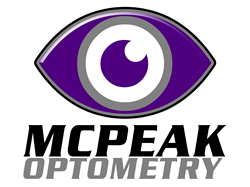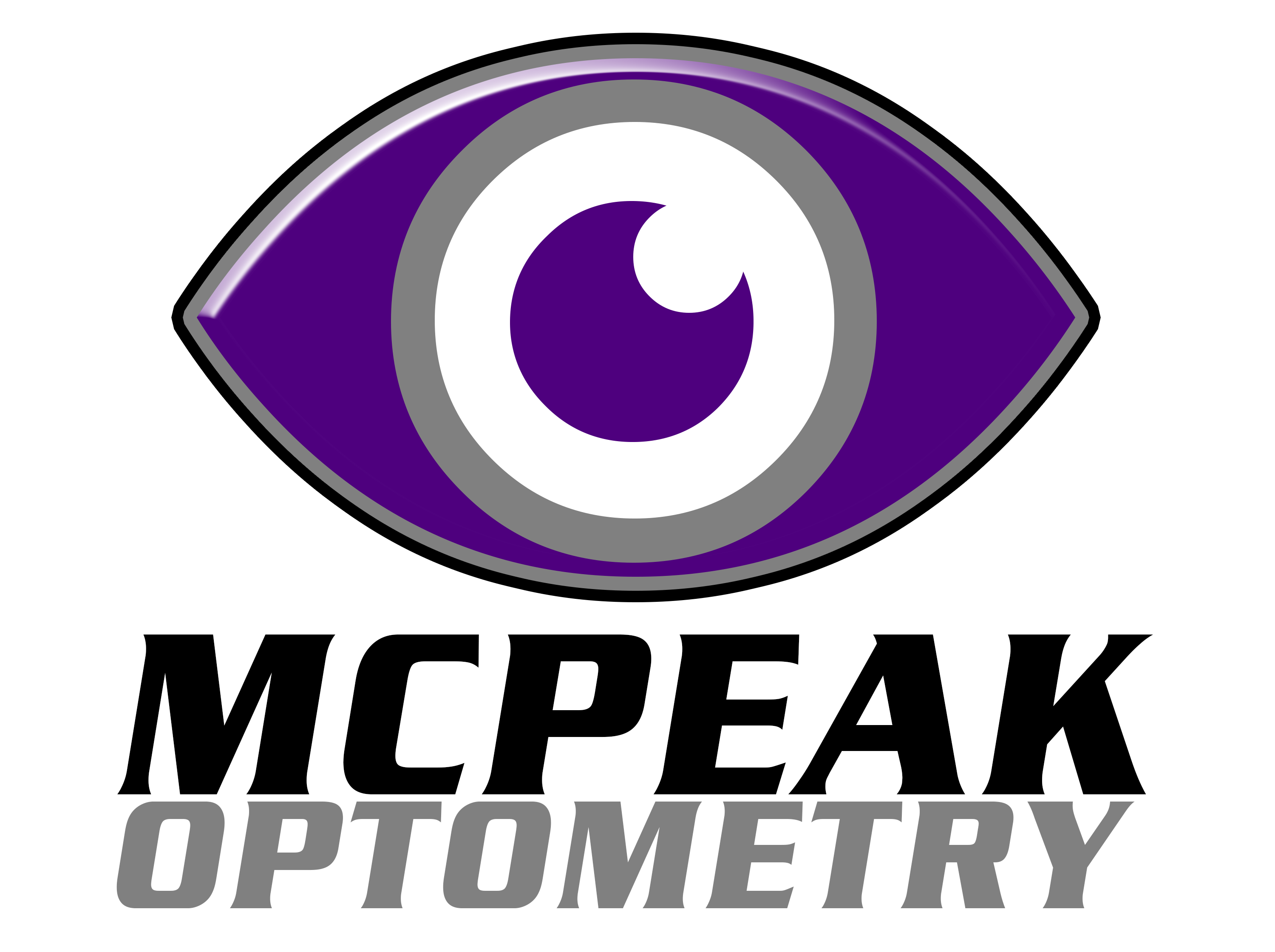
Comprehensive Eye Exams in Hiawatha & Falls City
Did you know an eye exam can reveal more than just your need for glasses? It's a critical tool in maintaining overall health. At McPeak Optometry, our eye exams go beyond simple vision checks, using cutting-edge Marco technology to detect eye diseases at the earliest stages. Serving the Hiawatha & Falls City communities, we're here to ensure that your vision care is as thorough and personalized as your needs.
Why Eye Exams Matter
Comprehensive eye exams are essential for everyone, regardless of age or health status. These exams provide a complete evaluation of your eye health and vision, allowing for early detection and treatment of any issues. They're the first step in ensuring your eyes remain healthy for years to come.
The Benefits of Eye Exams
Comprehensive eye exams are essential for maintaining optimal vision and overall health. These exams go beyond simple vision testing to evaluate the complete health of your eyes and can detect systemic health problems before other symptoms arise. Here are some key benefits of comprehensive eye exams:
- Early Detection of Eye Diseases: Many eye diseases, such as glaucoma, macular degeneration, and diabetic retinopathy, can be detected early through comprehensive exams. Early detection is crucial for effective treatment and preventing potential vision loss.
- Accurate Vision Correction: These exams determine the precise prescription for eyeglasses or contact lenses, ensuring optimal vision correction. This is vital for daily activities and safety, especially for tasks such as driving.
- Identification of Health Issues: Eye exams can reveal signs of systemic health problems like diabetes, high blood pressure, and high cholesterol. The eyes are the only place in the body where blood vessels can be seen without surgery, making them a unique window into one's overall health.
- Visual Acuity and Health: Comprehensive exams assess visual acuity and health, checking for problems affecting your ability to read, drive, and perform other tasks. This includes testing for color blindness, depth perception, and eye alignment.
- Updating Prescriptions: Your vision can change over time, and regular eye exams ensure that your prescription for glasses or contact lenses is up to date. Wearing the correct prescription supports optimal vision and prevents eye strain.
- Screening for Age-related Conditions: As you age, you become more susceptible to conditions like cataracts, macular degeneration, and glaucoma. Regular comprehensive eye exams help monitor these conditions, allowing for timely intervention.
- Pediatric Eye Health: For children, eye exams are crucial for detecting vision issues that could impact learning and development. Vision problems can be mistaken for learning disabilities; correcting these issues early supports educational success.
- Digital Eye Strain: With increased screen time, more people are experiencing digital eye strain. Eye exams can help identify this and provide solutions to reduce discomfort.
Comprehensive eye exams are integral to health maintenance for people of all ages. They ensure your eyes are healthy and contribute to overall well-being by detecting diseases early and providing accurate vision correction. Prioritizing regular eye exams can lead to a lifetime of good vision and health.
What to Expect: Preparing for Your Eye Exam
You can expect a thorough vision and eye health evaluation during a comprehensive eye exam. Here's a step-by-step overview of what typically happens during the exam:
Before the Exam
- Medical History: We will ask you about your vision history, any eye problems you're experiencing, medications you're taking, and overall health. Sharing information about your family's medical history, especially related to eye conditions, is also important.
Vision Testing
- Visual Acuity Test: This test measures how clearly each eye can see. You'll read letters on a chart positioned a distance away, typically using one eye at a time.
- Refraction Assessment: If you need vision correction, this test determines the exact prescription for your eyeglasses or contact lenses. It involves looking through a phoropter device as your eye doctor switches lenses of different strengths in and out.
- Peripheral Vision Test: This test evaluates your side (peripheral) vision, which can help detect conditions like glaucoma.
Eye Function Testing
- Eye Movement Test: This checks how well your eyes can follow a moving object and move between two separate points quickly and accurately.
- Depth Perception Test: This test assesses your ability to judge distances between objects, which is crucial for tasks like driving.
- Pupil Response to Light: The doctor will observe how your pupils adjust to light and dark, which can indicate potential eye health issues.
- Color Vision Testing: This identifies color blindness, which can impact daily activities and certain career paths.
Eye Health Examination
- Slit Lamp Examination: We use a microscope to examine the front part of the eye, including the eyelids, cornea, conjunctiva, iris, and lens. This can detect common eye conditions.
- Retinal Examination: By dilating your pupils with eye drops, the doctor can examine the back of your eyes, including the retina, the optic nerve, and blood vessels. This is crucial for identifying diseases like diabetic retinopathy, macular degeneration, and glaucoma.
- Glaucoma Test: This test measures the pressure inside your eyes, known as intraocular pressure (IOP), to check for glaucoma risk. A pressure-sensitive tool delivers a puff of air or a gentle touch to the eye.
After the Exam
- Discussion of Results: Your eye doctor will discuss the results of your tests, including any need for vision correction (glasses or contact lenses) or treatment for eye conditions.
- Recommendations and Follow-Up: Based on the exam findings, you may receive recommendations for eye health, including when to schedule your next eye exam, lifestyle adjustments to protect your vision, or referral to a specialist for further treatment if necessary.
Pediatric Eye Exams: Protecting Our Children's Future
Pediatric eye exams ensure children's healthy development and academic success. Unlike adults, children may not always recognize or articulate vision problems, significantly impacting their learning, social interactions, and sports performance. Early detection and treatment of vision issues are essential for preventing long-term visual impairment and supporting overall development.
Pediatric eye exams can identify common visual issues such as nearsightedness (myopia), farsightedness (hyperopia), astigmatism, and amblyopia (lazy eye). Early detection allows for timely intervention, which can correct or significantly improve these conditions before they hinder a child's development.
When to Schedule Pediatric Eye Exams
The American Optometric Association (AOA) recommends scheduling a baby's first comprehensive eye exam at six months, followed by exams at age three and before starting school at age five or six. An eye exam every two years is advisable for school-aged children if no vision correction is required. Children who need glasses or contact lenses should be examined annually or as their eye doctor recommends.
Pediatric eye exams are a proactive step towards ensuring children have the visual resources to succeed academically, socially, and in extracurricular activities. By prioritizing eye health early on, we can protect our children's future, ensuring they have the vision to reach their full potential.
Advanced Technology for Precise Diagnoses
The Role of Marco Technology
We're proud to utilize Marco technology in our eye exams. This advanced equipment allows for more accurate and efficient assessments, ensuring we tailor any prescription to your needs. It's how we elevate your care to the highest standard.

